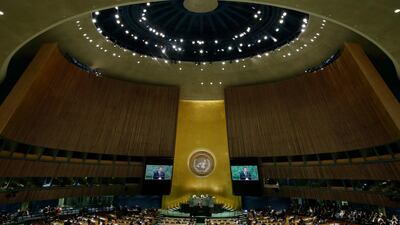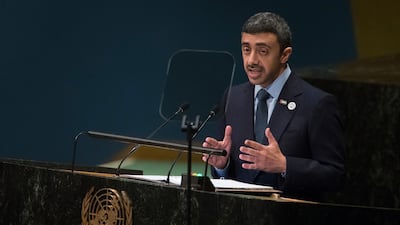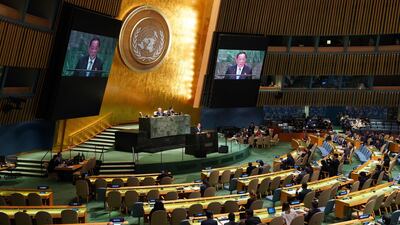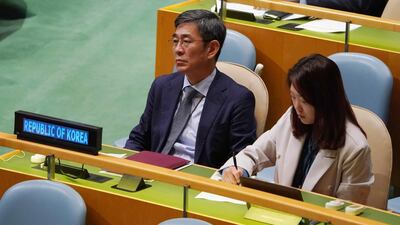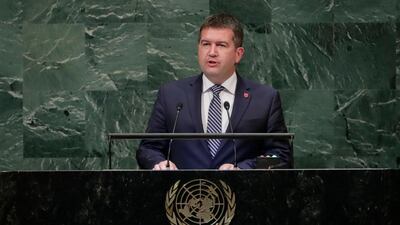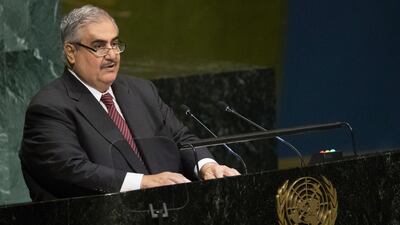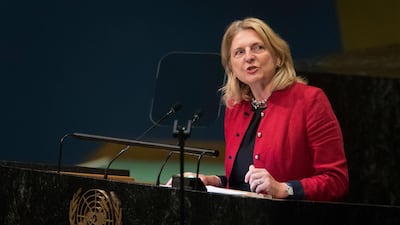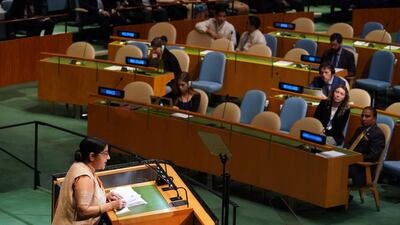World leaders have addressed the 73rd session of the United Nations General Assembly at a time of distress. Questions about the world order as we know it abound and this past week did nothing to answer them. Heightened tensions between the US and China, especially over trade, the regression of multilateralism and stalled climate change action all raise concerns.
For those outside the immediate policy circles, for whom the acronym UNGA means nothing, this week may not matter. But it does. Germany’s Foreign Minister Heiko Maas reminded those in New York of the opening lines of the UN Charter – ‘we the peoples’. The United Nations works in the name of the people – although often that is hard to execute. The theme of reforming the UN to meet that challenge was raised by Mr Maas and dozens of those speaking at the UN General Assembly podium. However, there was no tangible movement on this issue this year – and it is hardly likely to come about with a disengaged Security Council.
Mr Maas asked the UN General Assembly delegates about how a boy in Syria’s Idlib province might be impacted from the week. The first line of the UN charter says it came together “to save succeeding generations from the scourge of war”. The UN has failed in that endeavour in Syria, but for now at least, a battle has been averted over Idlib, while this week’s meetings reaffirmed the need for a political solution. Renewed support for humanitarian work in Syria by a number of European and Arab countries, along with the US, can provide tangible help to civilians in Idlib.
While by no means enough, having countries represented at the highest levels in one place once a year allows for coordinated work. This was on display this week with meetings on Iran, Yemen, Syria, North Korea and UNRWA.
__________________
Read more:
UN postcard: Ensuring their voice is not lost in the General Debate
UN postcard: Could the two-state solution get a new lease of life?
UN postcard: Two world views emerge... but sooner or later some middle ground will have to be found
__________________
At the very least, it is an opportunity to take stock of where each country stands on key issues and what their priorities will be for the upcoming year. That way those impacted can plan and push their agendas accordingly. For example, the Secretary General of the United Nations Antonio Guterres announced a climate summit next September, at a time when the climate agenda is being challenged and limited by the US and China. His announcement reinvigorates governments, NGOs and activists to move the agenda forward. As "old power", embodied by governments, sets certain agenda, the "new power" of citizen action, the private sector and NGOs can kick in.
The past week at the UN was a classic display of old power and new power. Old power heads of states meeting in an impenetrable building contrasted with the new power unleashed by networks of influencers. Whether it is former New York Mayor Michael Bloomberg hosting his own global summit or activists coming together to push the climate agenda, power is shifting. In their book New Power, which was discussed at an event in New York, Jeremy Heimans and Henry Timms describe new power as a current "made by the many". Old power this week was represented by UNGA speeches and national interests; new power will determine how those words can benefit those on the ground collaboratively.


